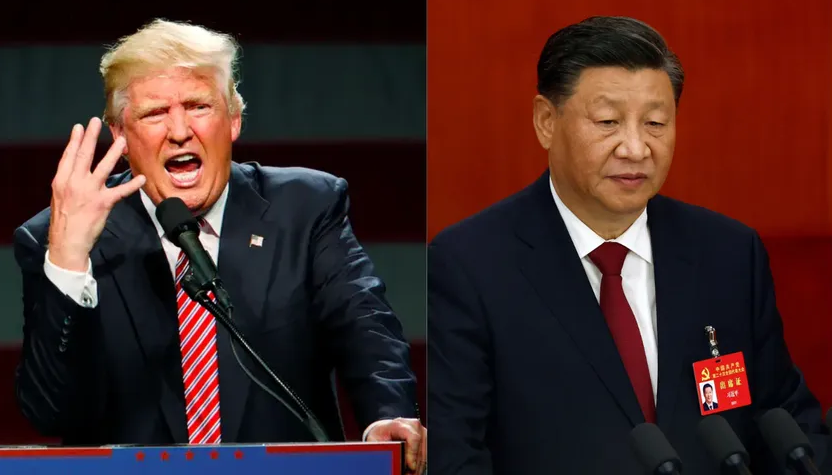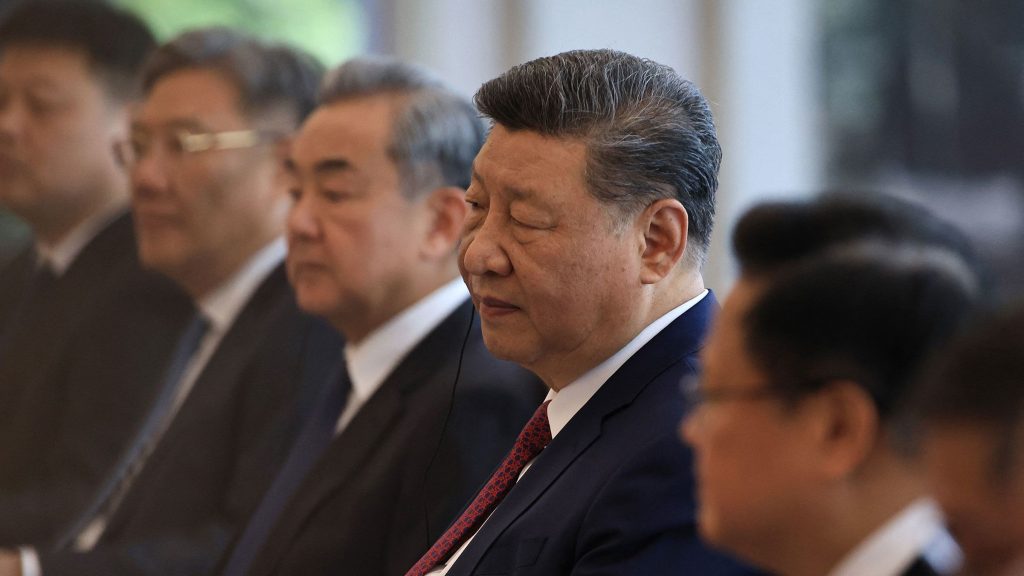The escalating trade tensions between the United States and China have reached unprecedented levels, with both nations imposing significant tariffs on each other’s goods. This intensification of the trade war has far-reaching implications for global markets, economies, and diplomatic relations.
Trump’s Tariff Escalation
President Donald Trump has announced a substantial increase in tariffs on Chinese imports, raising them to a staggering 245%. This move follows a series of earlier tariff hikes, including a 145% increase earlier in the month. The administration justifies these measures as necessary responses to China’s retaliatory actions and alleged unfair trade practices. Trump has emphasized that these tariffs aim to protect American industries and reduce the trade deficit with China.

China’s Retaliatory Measures
In response to the U.S. tariffs, China has implemented its own set of countermeasures. Beijing has imposed 125% tariffs on American goods and has taken significant steps such as banning Chinese airlines from purchasing aircraft from Boeing, a move that has sent shockwaves through the U.S. aerospace industry. Chinese officials have expressed their unwillingness to back down, stating that while they do not seek a trade war, they are prepared to defend their interests. Premier Xi Jinping has called for regional unity against unilateral trade actions, emphasizing that there are “no winners” in a trade war.
Leadership Changes and Strategic Shifts
Amidst the intensifying trade conflict, China has appointed Li Chenggang as its new trade negotiator, replacing veteran Wang Shouwen. Li, who has extensive experience in trade law and negotiations, previously served as China’s envoy to the World Trade Organization. This leadership change signals a potential shift in China’s approach to handling the trade dispute, possibly indicating a more assertive stance in negotiations. Analysts suggest that Beijing may be seeking new strategies to break the deadlock and protect its economic interests.
Economic Impacts and Market Reactions
The escalating tariffs have had significant repercussions on global markets. Stock markets have experienced volatility, with major indices experiencing declines. Companies heavily reliant on international trade, such as Boeing and Apple, face increased uncertainty and potential financial losses. Additionally, the imposition of tariffs has disrupted global supply chains, leading to delays and increased costs for businesses and consumers alike.

Diplomatic Tensions and Global Implications
The trade war has strained diplomatic relations between the U.S. and China, with both sides exchanging sharp rhetoric and accusations. The conflict extends beyond economics, affecting geopolitical dynamics and alliances. Other countries are closely monitoring the situation, concerned about the potential for broader economic instability and the precedent set by such aggressive trade policies. The dispute underscores the challenges of navigating complex international trade relationships in an increasingly interconnected global economy.
Conclusion
The intensifying trade war between the United States and China, marked by escalating tariffs and retaliatory measures, presents significant challenges for both nations and the global community. The economic, political, and diplomatic ramifications are profound, with potential long-term consequences for international trade and cooperation. As both countries navigate this complex conflict, the world watches closely, hoping for a resolution that promotes stability and mutual prosperity.

















